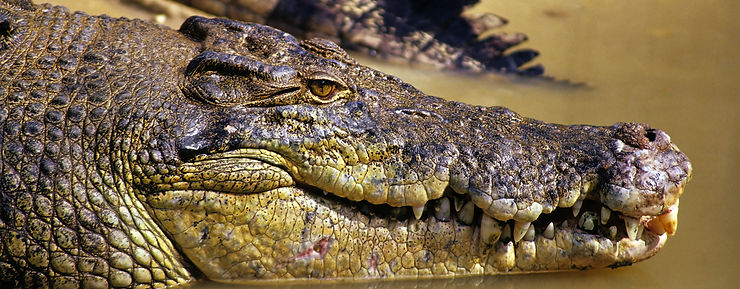Desperate Search Underway for Missing Child in Northern Territory
- Kalani Tharanga

- Jul 3, 2024
- 2 min read
By D. W. G. Kalani Tharanga, JadeTimes News

Community and Authorities Mobilize in Response to Potential Crocodile Attack
In a remote area of northern Australia, a frantic search is ongoing for a 12 year old child feared to have been taken by a crocodile. The child was last seen swimming near the small town of Palumpa, roughly a seven hour drive southwest of Darwin in the Northern Territory (NT), around dusk on Tuesday. Local police and community members immediately began searching Mango Creek after initial reports suggested the child had been attacked by a crocodile.
The search effort has since expanded to include a specialist search and rescue team, as well as additional officers. Senior Sergeant Erica Gibson reported that officers are currently combing the creek via boat, and there may be an aerial search launched soon. The NT, home to an estimated 100,000 saltwater crocodiles, boasts the highest population of these reptiles globally, but attacks on humans remain rare.
Saltwater Crocodile Attacks, A Rare but Present Danger
Saltwater crocodiles, once hunted to near extinction, have seen a significant rebound in numbers since hunting was banned in the 1970s. These formidable predators inhabit the northern fringes of Australia, from Broome in Western Australia to Gladstone in Queensland. Despite their prevalence, attacks are infrequent. In the past year, the Northern Territory has experienced only two other crocodile attacks. In January, a nine year old boy was injured while swimming in Kakadu National Park, and in October, a farmer narrowly escaped a crocodile's jaws by biting it back.
Although the NT has not recorded a fatal crocodile attack since 2018, other regions have not been as fortunate. Queensland has witnessed several deadly encounters, including the tragic death of a 16 year old boy in the Torres Strait in April. The current incident in Palumpa underscores the ever present risk posed by these powerful creatures, even as communities and authorities work tirelessly to ensure the safety and well being of their residents.










































Comments